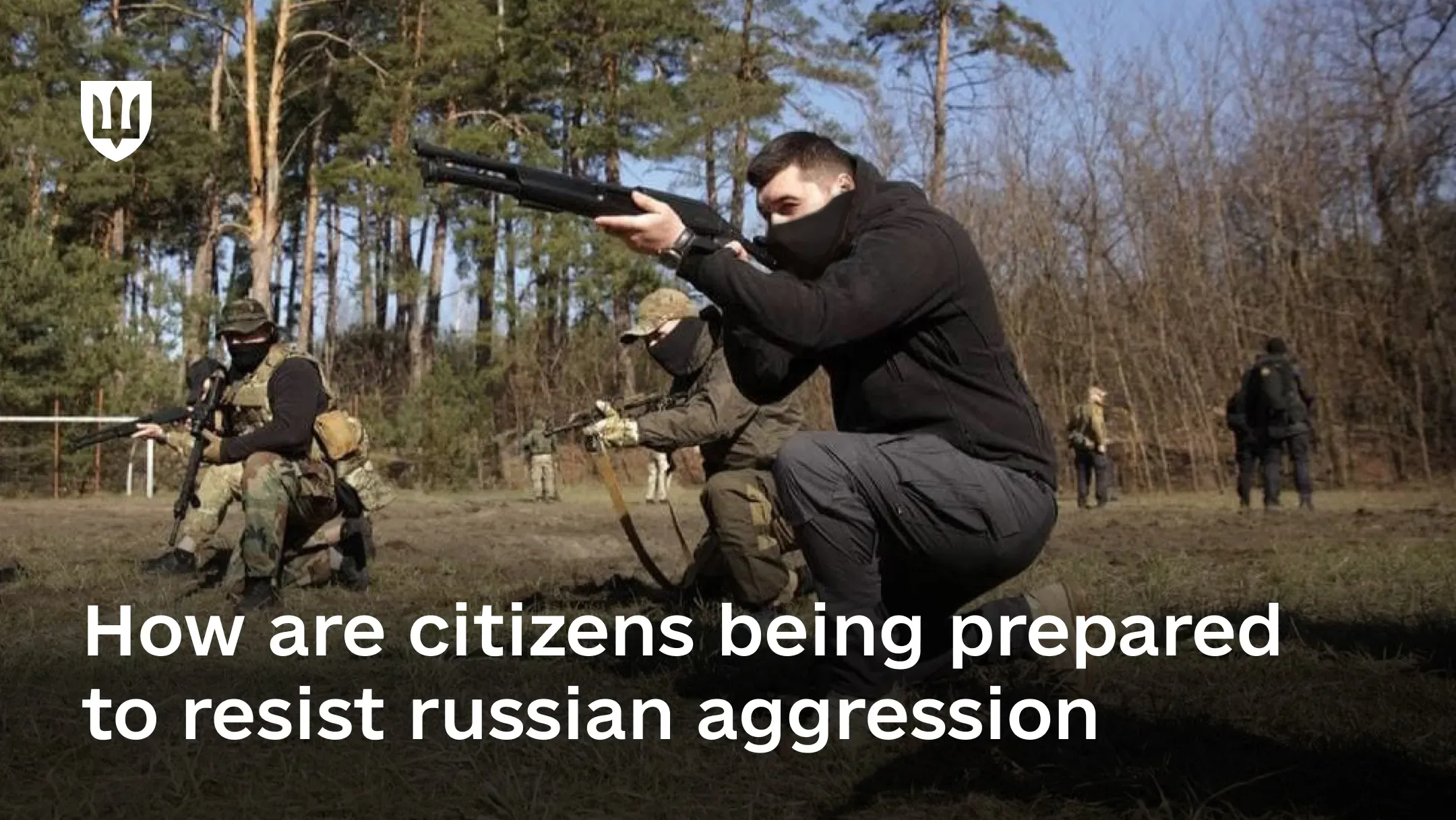The National Resistance: How citizens are being trained to counter russian aggression

Amid the full-scale war unleashed by russia, the National Resistance has become critically significant. Countering the aggressor has evolved into a collective effort of the entire Ukrainian people, making training for the National Resistance a matter of utmost importance. To defend their country from occupiers, civilians are being trained in the use of firearms, maintaining psychological resilience, and surviving in extreme conditions.
“During an existential war, training citizens for the National Resistance is not merely a task but a vital necessity. This is not only about defense but also about preserving statehood, culture, and the nation’s future. In the face of external aggression, every citizen must recognize their role in the collective struggle and be prepared to protect themselves, their loved ones, and their country,” emphasized Yurii Yelenich, Head of the National Resistance Policy Department at the Ministry of Defence of Ukraine.
The Ministry of Defence provides a detailed overview of the training of Ukrainian citizens for the National Resistance, including its components, functions, and the entities responsible for its organization.
What does training for the National Resistance entail?
The training of citizens for the National Resistance is a comprehensive system designed to develop the necessary skills and competencies for defending the state during emergencies or under martial law. This system is structured on a territorial-zonal principle and incorporates best practices from NATO member states.
Training is a key component of the National Resistance. Its primary objective is to foster societal readiness for sustained resistance against an aggressor, cultivate a patriotic and defense-oriented mindset, and equip individuals with the knowledge and practical skills necessary to protect Ukraine.
Training for the National Resistance is divided into two levels: initial and basic.
The legal framework for this training is established by key legislative acts, including the Constitution of Ukraine, the Laws of Ukraine “On the Fundamentals of the National Resistance,” “On the Fundamentals of State Policy in Affirming Ukrainian National and Civic Identity,” “On the Defence of Ukraine,” and other regulatory and legal acts.
What is the difference between Initial and Basic Training?
Initial General Military Training represents the first stage of equipping citizens with foundational knowledge and competencies related to state defense. It extends far beyond theoretical instruction, encompassing the development of a patriotic worldview and psychological readiness to defend Ukraine.
This training takes place in educational institutions, with additional military-patriotic activities conducted in a gamified format at summer camps.
Basic Training applies to citizens aged 18 and older who are not undergoing regular military service. Its goal is to develop skills for effective action in both peacetime and wartime, including combat scenarios.
What are the objectives of Initial Training?
Key areas of focus of training include military-patriotic education, legal education, moral-psychological education, an overview of the components of the Security and Defence Forces, as well as practical skills in civil protection and premedical care (first aid).
Military-patriotic education encourages young people to understand their responsibility to the Homeland and cultivate respect for state institutions. Legal education equips citizens with knowledge of the legislative framework governing Ukraine’s defense, civil protection, and personal safety.
Moral-psychological training fosters resilience in the face of stressful situations and equips individuals to act consciously and effectively in the face of extreme challenges.
What are the objectives of Basic Training?
The primary focus of Basic Training is on premedical care (first aid) training, tactical skills, weapons handling, survival basics, and operations in challenging conditions.
Firearms proficiency enables citizens to effectively protect themselves and their communities when necessary. Psychological motivation training encompasses methods for providing premedical care (first aid) and psychological support, which are crucial in emergencies.
Additionally, key objectives of Basic Training include fostering discipline, high moral-combat qualities, a sense of responsibility for defending the Homeland, and training in adherence to international humanitarian law and the law of war.
The training methodology emphasizes practical application, with at least 70% of the time dedicated to hands-on activities.
How is Initial Training for the National Resistance organized?
Initial Training is organized by the Ministry of Education and Science in collaboration with the Ministry of Defence. It is conducted in secondary, vocational, and pre-higher education institutions as part of the “Defense of Ukraine” curriculum subject.
The organizational process encompasses planning events, providing military-professional guidance, establishing training infrastructure, and ensuring comprehensive support for training activities.
Instructors and lecturers conducting classes and training sessions must possess a university degree and/or relevant professional qualifications, with priority given to those who have been discharged from military service, war veterans, or military veterans.
How is Basic Training for the National Resistance organized?
Basic Training is organized and conducted by the Ministry of Defence in cooperation with other executive authorities, local self-governance bodies, as well as volunteer, civic, and sports organizations.
Basic Training is delivered through training sessions and camps, following programs developed by the Command of the Territorial Defence Forces of the Armed Forces of Ukraine.
Currently, a network of Centers for the Training of Citizens for the National Resistance is being established. As of now, such centers are operational in 15 oblasts (regions): Vinnytsia, Volyn, Dnipropetrovsk, Poltava, Sumy, Zaporizhzhia, Zakarpattia, Kyiv, Ternopil, Kirovohrad, Lviv, Mykolaiv, Kharkiv, Khmelnytskyi, and Cherkasy. Centers for the Training Citizens for the National Resistance have also been established in the cities of Kyiv and Oleksandriia, Kirovohrad Oblast.
Civil society initiatives also play a significant role by conducting specialized training sessions and spreading instructions on actions to take in emergencies. Volunteers, veterans, and instructors actively train citizens in the fundamentals of battle drill, premedical care (first aid), and survival skills.